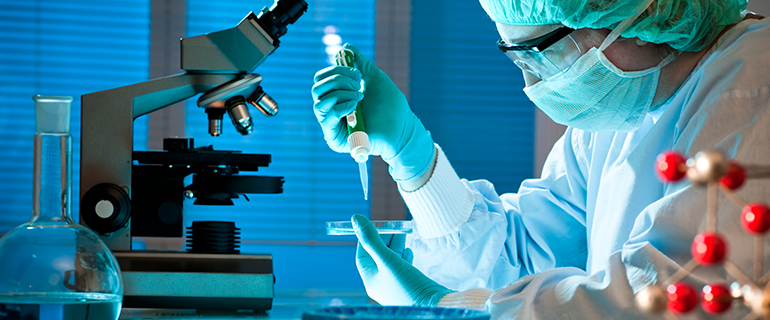>
>
Physiology Coursework
The graduate program leading to the PhD in physiology usually requires four to five years. The program is flexible and designed to meet the needs and interests of the individual student. During the first year, most of the student's time is devoted to basic course work, including some medical courses as well as graduate courses. Any deficiencies in undergraduate preparation may be made up in this year. Also, during the first year, the student is expected to examine current research programs in the department and to select a research area. Dissertation research should be under way early in the second year, before the student has completed formal course requirements. The second year and beyond include advanced courses consistent with the student's training and needs, with at least 12 hours in one or more other disciplines (biochemistry, pharmacology, cell biology, etc.) but the student's own research occupies an increasing amount of time as the course requirements are fulfilled. A satisfactory PhD dissertation is an original research contribution of significance, deserving peer reviewed publication in a journal of international repute. All students throughout their tenure are required to participate in the teaching programs of the department and to register for and attend departmental seminars.
Credit Hours Required for Graduation
A minimum of 60 credit hours is required and at least 30 of those hours must be taken in courses which require a letter grade for evaluation. No more than fifteen credits may be counted for research and dissertation. Registration in and attendance at seminar (Physio 299) and Journal Club (Physio 290) are required during all semesters of enrollment for all graduate students. All students will be required to present a seminar at the end of their tenure. A maximum of four credits for seminar will be counted toward the degree.

Teaching
The faculty considers teaching an important part of academic training. After passing the qualifying exam students will be expected to participate as teaching assistants in medical, nursing, dental, or allied health courses offered by the Department. Teaching assignments will be made before the beginning of each academic year. During the second and third years, students may be responsible for lecture and laboratory attendance, supervised presentation of a portion of lecture and/or laboratory material, administration of exams, grading of quizzes, participation in review and discussion sessions, and tutoring as assigned by the course director.
Additional Comments
Students are strongly encouraged to interact with each other and the faculty on a daily basis from the start of their tenure as graduate students. Laboratory research and investigation are vigorously emphasized at all stages of the program, including the first year of study. Until the Dissertation Advisor has been identified, research and didactic activities are coordinated by the Physiology Graduate Program Coordinator (Dr. Edwards) . In so far as possible, required and elective course work should be completed during the first two years of graduate study, and advanced years should be spent predominantly doing research and communicating findings at conferences and via publication. The LSUHSC Catalog should be consulted for additional information regarding the policies and programs pertaining to the PhD degree.

